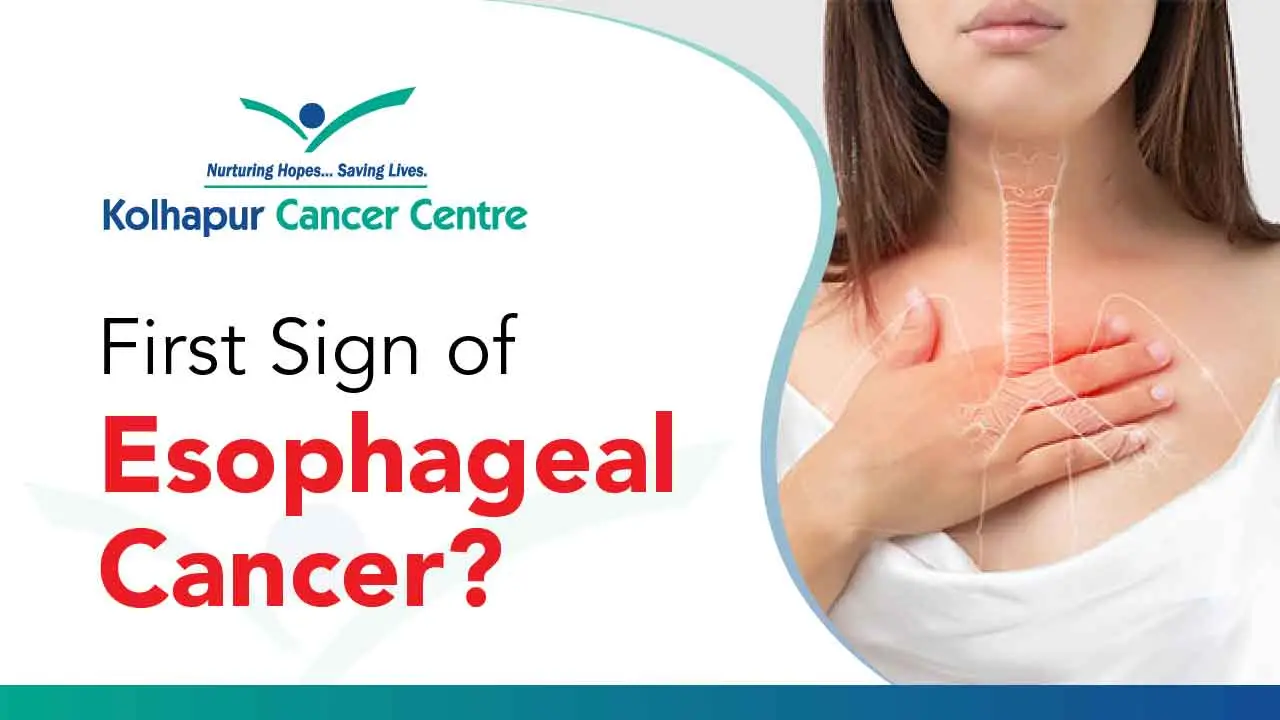First Sign of Esophageal Cancer: A Guide for Cancer Patients

Understanding Esophageal Cancer
What is Esophageal Cancer?
Risk Factors Associated with Esophageal Cancer
Various factors can increase an individual’s risk of developing esophageal cancer. These include:
- Age: The risk of esophageal cancer increases with age, with most people being diagnosed in their 60s and 70s.
- Gender: Men are three to four times more likely than women to develop esophageal cancer.
- Tobacco and Alcohol Use: Both smoking and heavy alcohol use are significant risk factors.
- Gastroesophageal Reflux Disease (GERD): The risk of adenocarcinoma is increased in individuals with chronic GERD.
- Obesity: Excess body weight can lead to GERD, which increases the risk of adenocarcinoma.
- Diet: Diets low in fruits and vegetables, and certain minerals may increase the risk.
What Does Esophageal Cancer Feel Like in the Beginning? Identifying the First Sign
Recognising the early symptoms of esophageal cancer is crucial. While these symptoms may vary from person to person, the following indicators could signal the early stages of the disease.
Difficulty Swallowing (Dysphagia)
One of the most common early signs of esophageal cancer is dysphagia, or difficulty swallowing. This may occur when eating solid foods at first but can progress to difficulty with swallowing liquids as the cancer grows and the esophagus narrows.
Unexplained Weight Loss
Weight loss is often a symptom of cancer, particularly when unexplained by diet or exercise. Esophageal cancer can lead to a decrease in appetite and difficulty eating, which may result in significant weight loss over a relatively short period.
Chest Pain
Esophageal cancer can cause a sensation of pressure, burning, or a tight band around the chest—commonly mistaken for heartburn. This pain can occur behind the breastbone or in the throat and often occurs during or after eating.
Persistent Cough or Hoarseness
A cough or changes to the voice that do not improve and persist over time could indicate esophageal cancer. Coughing may be accompanied by bloody phlegm, a clear indicator to seek medical advice.
Other Possible Symptoms
In addition to the above, patients with esophageal cancer might experience:
- Indigestion or heartburn that doesn’t go away.
- Frequent choking on food.
- Bone pain or weakness in the back or neck, which can occur when the cancer spreads.
- Vomiting.
- Unexpected hiccups.
Determining the first sign for each patient can greatly vary, which is why it’s crucial to listen to your body and note any persistent symptoms.
How Do You Confirm Esophageal Cancer?
Confirming esophageal cancer involves several steps. If symptoms suggest esophageal cancer, a cancer specialist may recommend one or more of the following diagnostic procedures:
Endoscopy
During an endoscopy, a thin, flexible tube with a camera at the end (endoscope) is passed down the throat to examine the esophagus. Biopsies can be taken during an endoscopy to test for cancer cells.
Biopsy
A biopsy involves taking a small sample of tissue from the esophagus to be examined under a microscope by a pathologist to look for cancer cells.
Imaging Tests
Imaging tests, such as CT scans and PET scans, can provide a clearer picture of the esophagus and surrounding areas, helping to determine the size and spread of the tumour.
Staging
Once cancer is confirmed, staging procedures help determine how advanced the cancer is and if it has spread. Staging can involve additional endoscopies with ultrasound, CT scans, PET scans, and sometimes other tests.
How Long Can You Have Esophageal Cancer and Not Know?
Why and When to Consult an Oncologist?
When to consult an oncologist depends on your specific symptoms and risk factors. If you’re at a higher risk for esophageal cancer, such as a history of smoking or GERD, or if you’re experiencing persistent or concerning symptoms, seeing an oncologist can be a proactive step.
An oncologist can conduct a detailed evaluation to determine whether your symptoms are linked to esophageal cancer and create a personalized care plan.
Oncologists play a crucial role in cancer detection and treatment. They are highly skilled in recognizing the nuances of various types of cancer, including esophageal cancer. If you have any concerns about your health, an oncologist’s expertise is your best bet for a thorough assessment and the next best steps in your healthcare.
Conclusion
Previous article
What is the Life Expectancy for Esophageal Cancer?
Next article
What Is the Survival Rate for Colon Cancer?

